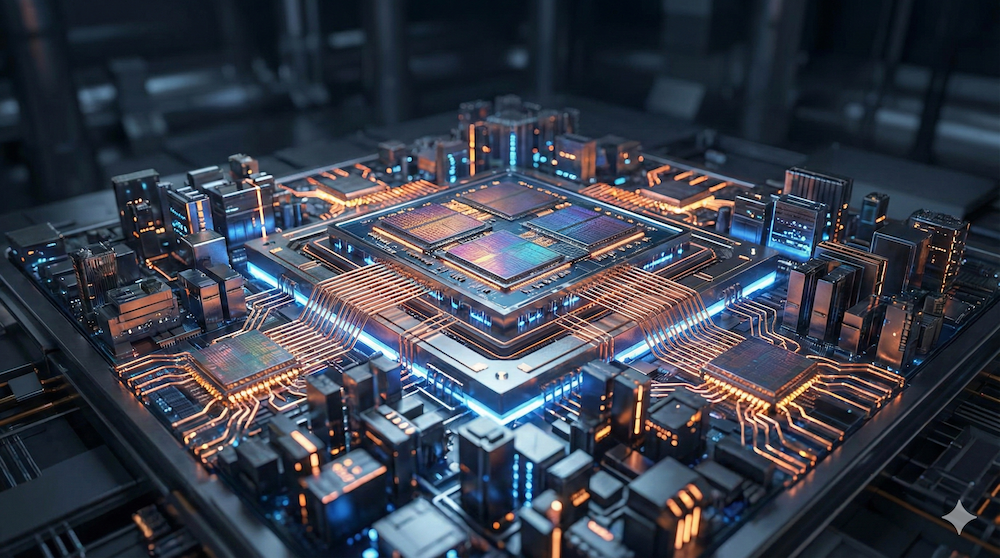NextGen Tech: Percipient.ai CEO & Founder Balan Ayyar
NextGen Tech: Percipient.ai CEO & Founder Balan Ayyar
Balan Ayyar is the Founder and CEO of percipient.ai, a Silicon-Valley based artificial intelligence, machine learning, and computer vision firm focused on intelligence and national security missions.
He is a seasoned CEO and retired USAF General Officer. Before founding percipient.ai, Balan was the CEO of a $100M+ Government Services IT firm.
His last role in the profession of arms was as the Commanding General of the Combined Joint Interagency Task Force 435, in Kabul, Afghanistan. He has served in four combatant commands, as the Military Assistant to the Secretary of Defense and in the White House as a White House Fellow. He is a Member of the Council on Foreign Relations.

Balan Ayyar is the Founder and CEO of percipient.ai, a Silicon-Valley based artificial intelligence, machine learning, and computer vision firm focused on intelligence and national security missions.
He is a seasoned CEO and retired USAF General Officer. Before founding percipient.ai, Balan was the CEO of a $100M+ Government Services IT firm.
His last role in the profession of arms was as the Commanding General of the Combined Joint Interagency Task Force 435, in Kabul, Afghanistan. He has served in four combatant commands, as the Military Assistant to the Secretary of Defense and in the White House as a White House Fellow. He is a Member of the Council on Foreign Relations.
What does Percipient.ai do?
Percipient.ai has built the leading intelligence analysis platform for ground, air, and space-based visual data. An understanding of sensitive environments can be almost priceless in many areas of the world where the DoD and other important agencies are protecting our nation. We like to think we provide accelerated understanding for the most important missions on Earth.
The fundamental premise is essentially: How can we, ahead of our adversaries, have a deeper understanding about the environment around us? Our flagship platform, Mirage® is a revolutionary intelligence analysis platform designed to further empower human analysts. It optimizes teamwork between humans and machines, enabling analysts to extract maximum value from data in real-time.
What's fundamentally new or differentiated for Percipient.ai?
We focused initially on building capabilities that would be adopted and mission-tuned in national security. Our intention was to take just a few high-level customers for whom these capabilities would be most valuable and drive enterprise software adoption. This is a very complex and difficult set of challenges – nobody has ever brought commercial software, let alone AI-enabled software into these very protected levels of sensitive data infrastructures.
Because our team has experience in these missions and an understanding of the challenges, we’ve designed Mirage with unique capabilities that allow users to move through the massive data they’re collecting with precision and flexibility. For example, with Mirage, you can ask to find “a young man with a goatee, an orange shirt, wearing sunglasses” and it will very quickly use our computer vision technology to triage in near-real time all the men that fit that description in a given area or over a given time. Users can simply query their data in natural language rather than building complex models in order to glean value from it.
What problems are you solving for your customers?
It’s an evolving world with data and control of data is extremely important. Our customers have specific areas of authority, and they use our software to help conduct their duties under those authorities, discovering patterns, relationships, networks – essentially uncovering what can be understood about the environment that can help them fulfill their missions.
For example, if you are a national police force, you're worried about people behaving counter to your laws and potentially a precursor to terrorism. Mirage analyzes thousands of camera streams in parallel to ensure any potential risks or vulnerabilities are well understood, and appropriately managed.
Our United States Special Operations Command wants to protect its forces that are operating in almost 80 countries around the world. They go there to build partnerships, resilience, and robustness against terrorism and other threats that may destabilize those nations. Mirage is the leading-edge software to help them recognize threats and adapt faster than potential adversaries to overcome them.
“This is a very complex and difficult set of challenges – nobody has ever brought commercial software, let alone AI-enabled software into these very protected levels of sensitive data infrastructures.”
How has the growing level of engagement and excitement around AI-enabled applications impacted Percipient.ai?
We have seen this potential for a long time and started coding in 2017 before the mad rush on generative AI and large language models, and the understanding that these capabilities in AI broadly were going to help accelerate our understanding of the environment. So, we are veterans in this space, but the acceleration of LLMs has added a level of excitement to the work we're doing.
Many people are talking about AI as if it will replace humans. To me, we're a long way off from being able to instill our AI with understanding about the value of life and how we make decisions in those environments. We're all learning together about the importance of building software that can build rather than erode trust, so that the values that the human mind brings to decisions, are strengthened – not weakened – by AI-enabled software.
What I think we need to do in the next ten years is build software that understands humans will be making the critical decisions. How can we build software that helps accelerate the understanding of these decision-makers? This is the basis of the design of the Mirage platform. Every challenge humanity is facing requires human understanding and judgment, especially when we are talking about supporting critical missions.
Can you talk about any exciting upcoming milestones in the company?
Our next big milestones involve enterprise adoption with leading customers in the national security market.
Visual intelligence is the next big, exciting, market unfolding before us. The ability to notify our customers when something over the horizon is happening – like when a low-Earth orbit satellite has just crossed overhead at five miles per second – and process and deliver that data in just a few seconds is brand new. It's changed the whole dynamic of the natural environment.
How did you become an entrepreneur?
A dozen years ago I was in the service as a young general officer, commanding our forces in combat in Afghanistan. I knew then that we absolutely needed a higher level of human and machine teamed with data to prevent attacks and protect our values.
When I first transitioned from the Air Force, I led a company in technology services in the government market. I was very fortunate to have a great team and the firm grew rapidly, and it was a formative experience for me to understand how to successfully build a company working closely with government agency customers.
But I knew I wanted to solve the problem of accelerated understanding from the massive data flows that our nation was collecting on the ground, in the air and of course, from space. I began pitching the concept of Percipient.ai as soon as the technology was ready.
What advice would you give to other founders/tech leaders?
It's not enough to have great technology. You must believe deeply that what you're building has the power to do something important and highly valued. This is true mostly for the hard challenges that AI can help transform and solve. Foresight, discrimination, and willpower are three attributes I think are very helpful.
How can an investor best support an early stage-tech startup?
There are a lot of venture capitalists that don't add too much value to companies other than the financial resources they provide, which is important in and of itself. The difference between a good and a great investor partner is whether they can understand and help your business strategy and overcome the challenges of adoption in your technology space.
We credit our venture investors, including Celesta, for understanding AI-enabled software takes time to adopt, tune, and build trust as the ecosystem and infrastructure necessary to drive enterprise adoption can mature.






